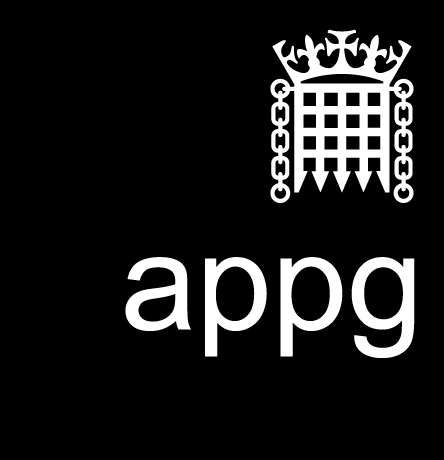Remembrance is an act of honouring those who serve, or have served, to defend our democratic freedoms and way of life. When we remember, we unite across faiths, cultures and backgrounds to mark the sacrifice of the Armed Forces community from Britain and the Commonwealth.
The APPG on British Muslims have partnered with the Royal British Legion to find new ways to commemorate the tremendous contributions that Muslims made to the British war effort and provide support to British Muslims to confidently take part in remembrance events.
Sadly, very few know about the Muslim contributions to the British war efforts. Research conducted by British Future discovered that only 1 in 5 people know about the Muslim contribution, and almost nobody (2%) is aware of its scale. This public knowledge gap belies the significant contribution of soldiers from different faiths and nations to Britain’s role in the First World War, and the shared war history of different communities in our country.
1.2 million soldiers came from what are now known as India, Pakistan and Bangladesh during the First World War, in answer to the call ‘Your Empire Needs You’- including at least 400,000 Muslim soldiers serving in the British Indian Army. They saw action in France and Belgium; in Gallipoli and Salonica; in East Africa; in Mesopotamia, Egypt and Persia. Over 47,000 were killed and 65,000 were wounded.
By 1945, the undivided Indian Army was the largest volunteer army in history, made up of 2.5 million men and women who served on land, sea and in the air.22 of the 34 Victoria Crosses won in the Burma Campaign were won by soldiers of South Asian origin or those from Nepal. Undivided India’s entire output of timber, woollen textiles, and leather goods, as well as three quarters of its steel and cement, were diverted to the defence of the British Empire - making it the second-largest contributor to the British, Commonwealth and Empire’s war effort.
And yet for such a huge contribution, the awareness and recognition of this effort is simply not in the general public’s consciousness.
Except for a few high-profile stories such as that of Noor Inayat Khan - a British Spy that was captured by the Germans and executed for not giving up secret information; or Khudadad Khan, the first non-white person to be awarded the Victoria Cross in 1914 - we know little of the Muslim contribution.
The stories of Muslim heroes are and should be so much more than just these two examples. One such case is Naik Shahamad Khan, who served in Mesopotamia as a machine gunner for the British forces and held back large scale offences from the enemy forces almost single-handedly. Enemy fire eventually damaged Khan’s machine gun, but he continued to fight with a rifle for hours, not allowing the enemy to advance. He was awarded a Victoria Cross for his bravery, and many believe that without Khan the enemy forces surely would have succeeded in their advanced.
Another: Jamadar Mir Dast. When British Officers had all been killed or incapacitated in the second battle of Ypres (1915), Mir Dast rallied the remaining soldiers and led them to successfully complete their mission - including personally carrying eight wounded officers to safety while exposed to heavy fire. Mir Dast was wounded and sent for treatment to the Brighton Pavilion, which was serving as a hospital, where King George V presented him with his Victoria Cross.
Little is known of the tens of thousands of “Lascars” - Muslims employed on the British Merchant Navy, working on British-registered ships, making up 17.5 percent of the total labour force by 1914.
At the outbreak of the Second World War there were over 50000 Lascar sailors in the British Merchant Navy, making up 26% of the labour force. Some 6,600 were killed, 1,022 wounded, and 1,217 taken as prisoners of war.
The identities of these Muslim sailors are still widely unknown, however in 2012 the graves of 11 Muslim seafarers who joined the allies were rediscovered in Liverpool. The men, who were on convoy ships bringing food and material supplies to the UK, were from the island of Java, between Sumatra and Bali. Tasked with maintenance in the ship’s engine rooms, they travelled to the US and Russia to collect and distribute food. They had been buried and forgotten for almost seven decades. The lost graves of these Muslim merchant seamen who died serving the Allies during the second world war have rightly been marked and have been given new headstones during a poignant ceremony to ensure they are not forgotten again.
We must remember them - and others like Force K6, an all-Muslim Punjabi regiment mainly from the Pakistan side of pre-partition India that escaped from Dunkirk during World War II. They arrived in Britain in 1942, eventually making their way to Scotland, where they served as the mule transport regiment, training and supplying the defences from the Scottish Highlands. Fourteen of the Force K6 men died in Scotland, with nine of them buried in the New Cemetery at Kingussie.
The more we uncover, the more we realise that behind the British triumph in the World Wars, there were the brave Muslim men marking the trenches, manning the guns, and sailing the ships for the freedoms and the way of life we all cherish in Britain today. With such momentous contribution it is essential that Muslim contribution is rightfully included in the British Remembrance period.
Sarah Owen MP (Co-chair APPG on British Muslims),
Paul Bristow MP (Co-chair APPG on British Muslims)
Image Source: Our Migration History: https://www.ourmigrationstory.org.uk/oms/the-lascars-britains-colonial-era-sailors
